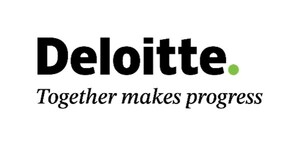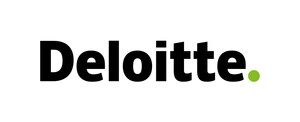
Despite Rising Crises, Deloitte Study Finds Organizations' Confidence Exceeds Crisis Preparedness
- Sixty percent of crisis management leaders believe that organizations face more crises today than they did 10 years ago
- Organizations' confidence in their crisis management capabilities often does not align with their actual level of preparedness
- Being at the ready significantly reduces the negative impact of a crisis, particularly if senior management and board members have been involved in creating a crisis plan and participate in crisis simulations
NEW YORK, June 25, 2018 /PRNewswire/ -- Organizations are keenly aware of the increasing threat of crises. According to Deloitte Global's 2018 crisis management survey, "Stronger, Fitter, Better: Crisis Management for the Resilient Enterprise," nearly 60 percent of respondents believe that organizations face more crises today than they did 10 years ago, yet many may overestimate their capabilities to respond.
The study, which builds on the findings of Deloitte Global's 2015 study, "A Crisis of Confidence," surveyed over 500 senior crisis management, business continuity, and risk executives about crisis management and preparedness.
"Today's organizations face a global business environment with change happening quickly and crises on the rise," said Rhoda Woo, managing director in Deloitte & Touche LLP's Risk and Financial Advisory practice and leader of Deloitte's crisis management practice for the U.S. firm. "But those who take a systematic approach to steering clear of crises and effectively managing ones that do arise, especially by engaging senior management and board members, can avoid the devastating impact a crisis can have on financial performance, employee morale, sales and reputation."
Confidence outstrips preparedness
This year's study uncovered dramatic gaps between a company's confidence that they can respond to crises and its level of preparedness. The gap becomes even more evident when evaluating whether organizations have conducted simulation exercises to test their preparedness.
Nearly 90 percent of respondents are confident in their organization's ability to deal with a corporate scandal, yet only 17 percent of organizations have tested the assumption through simulation. The gap is reminiscent of the 2015 findings, which illuminated the fact that board members believed they could respond well if a crisis struck, yet playbooks of likely scenarios failed to exist.
Experienced a crisis before? Key learnings drive preparedness for the future
Eighty percent of organizations worldwide have had to mobilize their crisis management teams at least once in the past two years. In particular, cyber and safety incidents have topped companies' crises (46 and 45 percent, respectively).
Many who have already experienced a crisis are learning from them. Following a crisis, nearly 90 percent of organizations have conducted reviews. The major insight from these examinations is that many crises may have been averted. This appears to prompt organizations to act to forestall future crises. Respondents identified the need to improve detection and early warning systems, invest more effort in prevention, and do more to identify potential crisis scenarios.
Boards and business leaders must be crisis-ready
When responding to a crisis, strong leadership skills and situational awareness are critical. The survey finds that nearly a quarter (24 percent) of respondents cite the effectiveness of leadership and decision making as one of their greatest crisis management challenges. To help leaders be prepared to navigate their organizations through a crisis, organizations should consider: organizing leaders ahead of time, clearly defining their various roles and responsibilities; training leaders in the tools and techniques that can help them through a crisis; identifying, improving and counterbalancing leadership tendencies and styles which, while they may serve as strengths in normal situations, could cause trouble in a crisis.
"The survey results reinforce the need for senior leaders to take an objective and detailed look at their organizational approach to crisis management," explained Deloitte Risk and Financial Advisory CEO Chuck Saia. "Today's complex business environment requires a risk management program that's agile, disciplined and proactive. Leveraging scenario planning like war-gaming and cognitive technologies like reputational sensing can strengthen crisis preparedness and protect reputation, one of an organization's most valuable assets."
Board and senior management participation in crisis exercises is critical, as is their involvement in developing an organization's crisis plan. More than 4 in 5 (84 percent) respondents say their organizations have a crisis management plan in place, and those who enlist the board to participate say the number of crises has declined over the last decade (21 percent), compared to those without board involvement (2 percent).
Third parties are part of the problem — and the solution
Crises often emanate from the actions of third parties, such as suppliers and alliance partners, but the same third parties often play an important role in helping to manage and mitigate crises. Recognizing this, 59 percent of respondents say that they participate in crisis exercises with third parties, examine third parties' crisis plans, or both. Bringing in outside organizations and coalescing internal teams is an important part of addressing, and potentially preventing, crises.
Crises aren't inevitable. Many of them are avoidable, which is why smart business leaders invest in crisis management capabilities. These strengths can help their organizations avoid costly, and sometimes irreparable, damage to finances, employee morale, brand and reputation. Truly effective crisis management goes beyond being reactive and simply protecting existing value. It also enables resilience and powers future performance, thereby enabling an organization to emerge stronger.
Read the full study to learn more.
About Deloitte
Deloitte provides industry-leading audit, consulting, tax and advisory services to many of the world's most admired brands, including more than 85 percent of the Fortune 500 and more than 6,000 private and middle market companies. Our people work across more than 20 industry sectors to make an impact that matters — delivering measurable and lasting results that help reinforce public trust in our capital markets, inspire clients to see challenges as opportunities to transform and thrive, and help lead the way toward a stronger economy and a healthy society. Deloitte is proud to be part of the largest global professional services network serving our clients in the markets that are most important to them.
Deloitte refers to one or more of Deloitte Touche Tohmatsu Limited, a UK private company limited by guarantee ("DTTL"), its network of member firms, and their related entities. DTTL and each of its member firms are legally separate and independent entities. DTTL (also referred to as "Deloitte Global") does not provide services to clients. In the United States, Deloitte refers to one or more of the US member firms of DTTL, their related entities that operate using the "Deloitte" name in the United States and their respective affiliates. Certain services may not be available to attest clients under the rules and regulations of public accounting. Please see www.deloitte.com/about to learn more about our global network of member firms.
SOURCE Deloitte






Share this article